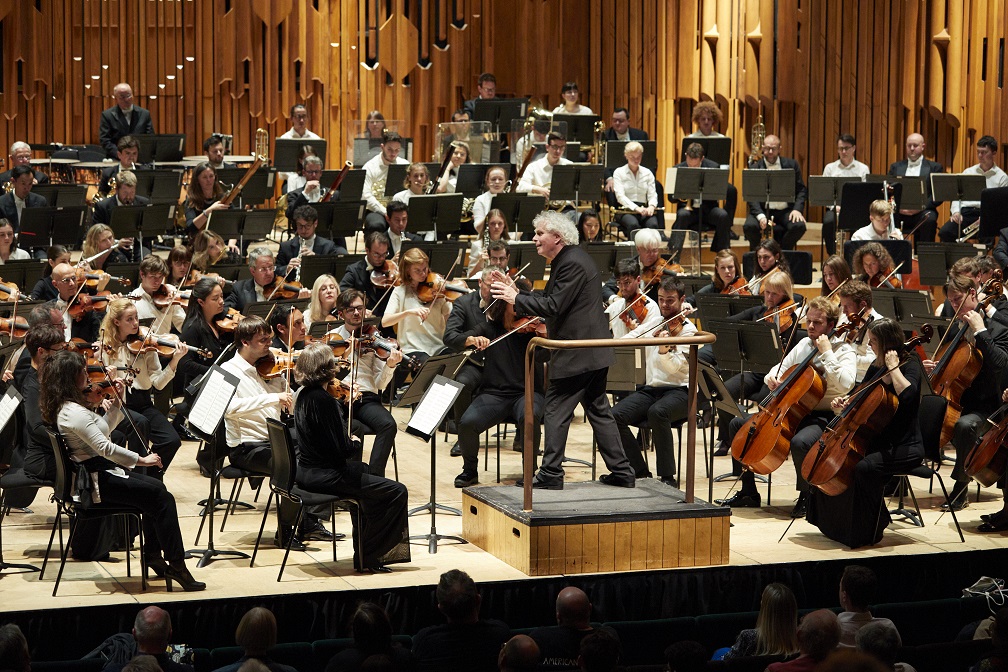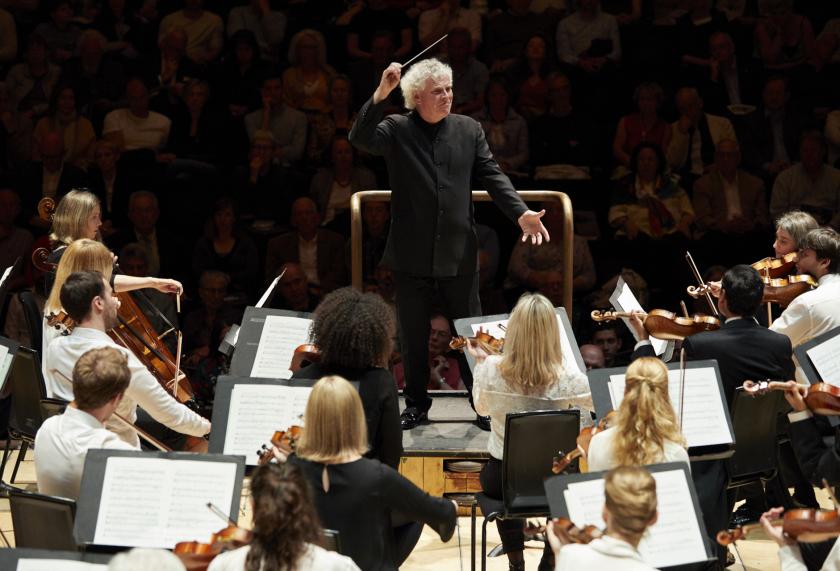The Barbican Hall hardly boasts the numinous acoustic of Gloucester Cathedral for which Vaughan Williams composed his Fantasia on a Theme of Thomas Tallis, but Sir Simon Rattle has long known how to build space into the architecture of what he conducts.
No indulgences needed to be made for the students of the Guildhall School of Music next door. They slotted seamlessly within the ranks of the LSO to conjure a luminous halo of string sound, untroubled by the sense of loss which belongs to the piece in more lean and urgent performances. Their wind colleagues then filled the stage for Percy Grainger’s Lincolnshire Posy, a more eccentric and rumbustious take on English folk culture.
But this concert was all about the second half: a sublime account of Bruckner’s Fourth Symphony, endowed with expectation and momentum from the opening bars. Rattle found a logically related tempo for all four movements so that they unfolded in a single, glorious span. Fanfare, chorale and country dance are Bruckner’s found objects of inspiration. Here they were woven together into a story always on the move, and towards an apotheosis both inevitable and yet unforeseen.

Too often the Fourth Symphony, even when well played, seems to rest on its haunches – at least when compared with the more angular cast of the Fifth and Ninth, say, the steady purpose of the Sixth or the dark-to-light journey of the Eighth. On this occasion the horn solo outlined the symphony’s motto-theme through tremolo mists not with satisfied nobility but as a dawning of new life. And Rattle's Bruckner has sometimes struggled to transcend a fixation with fine detail and the cultivation of a sleek legato. Not last night. Rarely since the death of Günter Wand – in 2002 – have I encountered a Bruckner movement sustained throughout with such a consistent pulse.
It established a momentum that carried over into the Andante, which here lost nothing by comparison with Mozart and Wagner – Bruckner’s lodestars in their very different ways – for the simultaneous expression of joy and melancholy. The 10-bar coda, stifled and even cursory in other hands, for once felt like a masterstroke, postponing resolution and throwing light on the Trio of the Scherzo as the symphony’s one true point of rest. In this regard and others the Fourth was illuminated as the sequel to Schubert’s Ninth, as a "summer journey" symphony of sublime scale but no less ineluctable momentum.
Bruckner doesn’t make life easy for the conductor with the glorious rediscovery of the motto theme just a few minutes into the finale. Where to go from there? Into the woods again, in short, because there is always more to find – a version of the first movement’s second theme more outgoing than before, as though the symphony were analysing itself in progress. Even the clunky transition where Bruckner threatens to settle into a Pomp and Circumstance march was shaded off with charm and grace. This Fourth didn’t share the emotive grandeur of Bernard Haitink’s valedictory thoughts on the piece, from earlier this year, but its coda attained a genuine sublimity that seemed to take even Rattle and his musicians by surprise.













Add comment